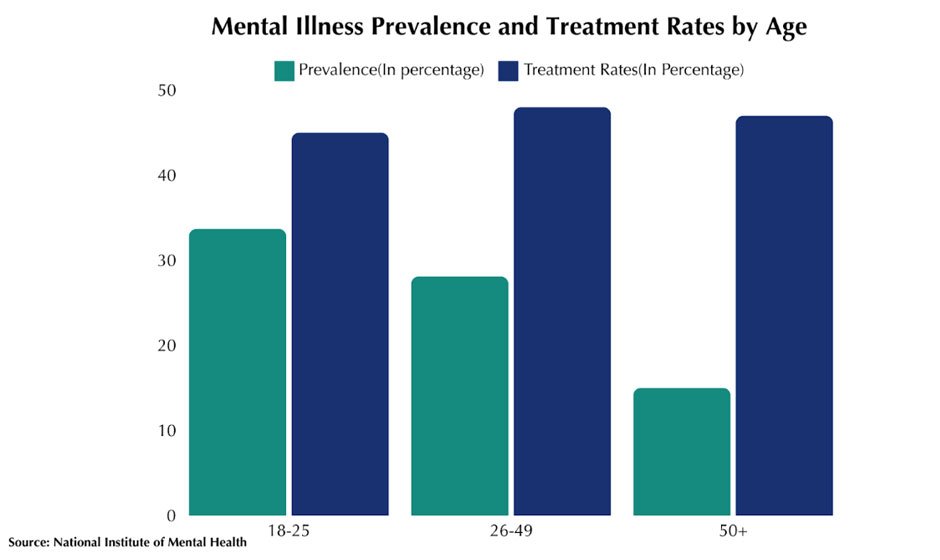Are you feeling overwhelmed by the challenge of improving your health while spending more time at home? Many people struggle with this, but don’t worry – you’re not alone. This guide is designed for busy individuals like you who want to enhance their well-being without leaving the comfort of their homes.
We’ll explore practical, easy-to-implement strategies that can make a significant difference in your overall health. Whether you’re working from home, caring for family, or simply looking to make positive changes, these steps will help you create a healthier lifestyle right where you are.
1. Create a Healthy Home Environment
Your living space significantly impacts your physical and mental well-being. Create a healthy home environment by decluttering and organizing your living areas. This process can provide therapeutic benefits and reduce stress and anxiety.
Improve indoor air quality by regularly opening windows, using air purifiers, and adding air-filtering plants. Regular vacuuming and dusting help reduce allergens. Create a dedicated relaxation area with comfortable seating, soft lighting, and calming decor to serve as a retreat for stress reduction and improved mental health.
This space can serve as a retreat for stress reduction and mental health improvement. A clean, organized, and positive environment promotes overall wellness, transforming your home into a sanctuary that supports both physical and mental health.
2. Stay Hydrated
Proper hydration is crucial for overall health and can be easily managed at home. Set hydration goals by determining how much water you should drink daily and set reminders to help you reach your goal.
If plain water doesn’t appeal to you, try infusing it with fruits or herbs, or switch to herbal teas. Keep track of your daily water consumption to ensure you’re meeting your hydration needs.
Effects of Alcohol on Hydration
When it comes to staying hydrated, it’s important to be aware of how alcohol consumption affects your body. As you focus on improving your health at home, you might be evaluating your drinking habits and trying to understand how long does alcohol stay in your system to make informed decisions. Knowing this can help you manage your hydration and overall health.
Alcohol can dehydrate you, so it’s essential to drink plenty of water before, during, and after consuming alcoholic beverages to maintain proper hydration.
3. Focus on Nutrition
A balanced diet is essential for good health. Enjoying nutritious meals at home can be both satisfying and beneficial. Plan and prepare meals in advance to help you make healthier food choices. Set aside time each week to plan your meals and prepare ingredients in advance for quick and easy cooking. Consider batch cooking and freezing portions for later convenience.
Stock your kitchen with healthy options like fresh fruits and vegetables, whole grains, lean proteins, and healthy snacks like nuts and seeds. This makes it easier to make nutritious choices when you’re hungry.
Practice mindful eating by being aware of your eating habits. Eat slowly and savor your food, avoid distractions like TV or phones during meals, and listen to your body’s hunger and fullness cues.
| Aspect | Traditional Approach | At-Home Approach |
| Exercise | Gym membership required | No special equipment needed |
| Nutrition | Eating out or pre-made meals | Home-cooked, controlled meals |
| Stress Management | Professional therapy sessions | Self-guided relaxation techniques |
| Sleep | Irregular patterns due to commute | A consistent sleep schedule is possible |
| Cost | Potentially high (gym fees, eating out) | Generally lower, more cost-effective |
4. Establish a Consistent Sleep Routine
Quality sleep is fundamental to good health. Establishing a regular sleep schedule can improve your overall well-being. Try to go to bed and wake up at the same time every day, even on weekends. This helps regulate your body’s internal clock and can lead to better sleep quality.
Establish a calming bedtime ritual to signal to your body that it’s time to wind down. This could include reading a book, taking a warm bath, practicing light stretches, or listening to soothing music. Find what works best for you and stick to it consistently.
Ensure your bedroom is conducive to sleep by keeping it cool, dark, and quiet. Use comfortable bedding and minimize noise disturbances. It’s also beneficial to remove electronic devices from the bedroom, as the blue light emitted by screens can interfere with your sleep cycle.
5. Incorporate Regular Exercise
Physical activity is crucial for maintaining good health. You don’t need a gym membership to stay active at home. Create a home workout routine that fits your schedule and preferences. This could include bodyweight exercises, yoga or Pilates sessions, dance workouts, or using resistance bands or small weights.
Take advantage of the wealth of free workout videos and fitness apps available online. These can provide guidance and motivation for your home workouts. Even if you can’t dedicate time to a full workout, try to move regularly throughout the day. Take short walking breaks, do stretches while watching TV, or use a standing desk if working from home.
6. Prioritize Mental Health
Mental well-being is just as important as physical health. Implement strategies to support your emotional and psychological health at home. Incorporate mindfulness techniques into your daily routine, such as guided meditation, deep breathing exercises, or engaging in activities like coloring or gardening.
Maintain social connections, even if you can’t meet in person. Schedule regular video calls with friends and family, join online communities or groups with shared interests, or write letters or emails to loved ones.
According to the National Institute of Mental Health, over 1 in 5 adults in the U.S. experience mental illness each year, but less than half receive treatment. This highlights the importance of proactive mental health strategies to ensure overall well-being.

Engaging in activities that bring you joy and fulfillment is also crucial for mental health. Consider learning a new skill or language, taking up a creative pursuit, or exploring virtual tours of museums or travel destinations.
7. Manage Stress
Chronic stress can negatively impact both physical and mental health. Implement stress-reduction techniques at home. Practice relaxation techniques such as progressive muscle relaxation, guided imagery, or deep breathing exercises.
If working from home, set clear boundaries between work and personal time by creating a dedicated workspace, sticking to defined work hours, and taking regular breaks.
8. Improve Posture and Ergonomics
Proper posture and ergonomics are important, especially if you spend a lot of time at home. If you work from home, set up an ergonomic workspace with a chair that provides good back support, position your computer screen at eye level, and use a keyboard and mouse at a comfortable height.
Be mindful of your posture throughout the day by standing up straight with your shoulders back and avoiding slouching when sitting. Take regular breaks to stretch and move.
9. Limit Screen Time
Excessive screen time can negatively impact both physical and mental health. Set screen time limits by establishing rules for screen use, such as designating screen-free times during the day or using apps to track and limit screen time.
Create screen-free zones in your home where screens are not allowed, such as the dining table or bedroom. Replace screen time with other engaging activities like reading books, engaging in face-to-face conversations, or pursuing hands-on hobbies.
10. Practice Personal Hygiene
Establish a Daily Hygiene Routine
Create a consistent routine that includes regular hand washing, daily showers or baths, and proper dental care (brushing and flossing).
Keep Your Living Space Clean
Maintain a clean home environment by regularly cleaning and disinfecting frequently touched surfaces, washing bedding and towels weekly, and keeping bathroom and kitchen areas sanitized.
Pay Attention to Grooming
Don’t neglect personal grooming. Trim nails regularly, maintain hair hygiene, and care for your skin with proper cleansing and moisturizing.
Conclusion
Achieving better health at home is an ongoing process that requires commitment and consistency. By implementing these steps, you can create a healthier lifestyle without leaving your house. Remember, small changes can lead to significant improvements over time.
Start with one or two areas that resonate with you and gradually incorporate more healthy habits into your daily routine. Your home should be a sanctuary that supports your well-being. With these strategies, you can transform it into a place that nurtures your body and mind.
Frequently Asked Questions
How long will it take to see results from these health improvements?
Results vary, but many people notice improvements within 2-4 weeks. Consistency is key. Some changes, like better sleep or increased energy, may be noticeable sooner.
How can I stay motivated to maintain these healthy habits?
Set realistic goals, track your progress, and celebrate small wins. Find an accountability partner or join online communities for support. Remember why you started and visualize your health goals.
Are there any costs associated with implementing these health strategies at home?
Most strategies have minimal costs. You might spend on healthier groceries or basic exercise equipment. However, many improvements, like better sleep habits or stress management techniques, are free.





